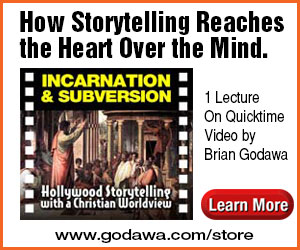Friends of mine did this great “Audio Drama Extreme”
The Strange Disappearance of Henry Allison.
Listen Free
Friends of mine did this great “Audio Drama Extreme”
The Strange Disappearance of Henry Allison.
Listen Free
 In anticipation of the release of my next novel, Jesus Triumphant, Book 8 of the Chronicles of the Nephilim, I am going to post some articles on wild and bizarre spiritual stuff in the New Testament that will show up in the novel to come. July release. You better get cracking on the previous books in the series cause it all fits together with the Watchers, The Nephilim and the Cosmic War of the Seed.
In anticipation of the release of my next novel, Jesus Triumphant, Book 8 of the Chronicles of the Nephilim, I am going to post some articles on wild and bizarre spiritual stuff in the New Testament that will show up in the novel to come. July release. You better get cracking on the previous books in the series cause it all fits together with the Watchers, The Nephilim and the Cosmic War of the Seed.
Demons are a theological problem. Where do they come from? What are they? Why are they almost entirely absent in the Old Testament, and then all of a sudden, there is a flurry of demonic activity and possessions once Messiah comes to Israel? The casting out of demons is so frequently linked with Jesus’ proclamation of the Gospel that it seems to be more than a mere symbolic expression of his power over the spiritual world. It appears to be an essential theological component of the New Covenant.
First, just what are demons? We see in the New Testament that they are evil spirits that possess or inhabit the physical bodies of living individuals (Luke 11:24-26), and who are cast out by Jesus and his disciples by the power of the Holy Spirit (Matt. 8:16; Luke 10:17). Their presence sometimes causes physical infirmities like blindness (Matt. 12:22), deafness (Mark 9:17-29), or epilepsy (Matt. 17:15-18), as well as mental insanity (Mark 5:15). Many of them can inhabit one body (Mark 5:9), and bring great strength to the host (Mark 5:4).
But where did these evil spirits come from? In the Old Testament, there is very little explanation of demons. God sends an evil spirit to torment King Saul in 1 Sam. 16:14. Based on Saul’s insane behavior it is safe to say he was most likely possessed by that evil spirit (v. 15-23). 1 Kings 22:22-23 reveals that God sends a “lying spirit” into the mouths of false prophets. Demons? Maybe. But certainly subservient to God’s interests. Even the satan is depicted as a circumscribed servant of God’s will in the Old Testament (Job 1:12). As explained in other Appendices of the Chronicles, pagan idols are often referred to as demonic (“sheddim” Deut. 32:17; Psa. 106:34-37; Lev. 17:7; 2 Chron. 11:15) exposing the spiritual reality behind their earthly façade of graven images and foreign deities. But even these are not the same as what we traditionally think of as demons.

Other than these few examples, there is a dearth in the Old Testament of the kind of activity we read about in the New Testament, with raging demoniacs being exorcised by Christ and his disciples. It seems like the demons knew that the presence of Messiah was the final countdown of their own demise and they were throwing fits and tantrums. As if the Seed of the Woman was crushing the Seed of the Serpent’s head and the body was wriggling in pain.
But they are never described as fallen angels in the Bible. What then, are demons and from where do they come?
The church father Origen claimed that there was no clearly defined teaching on their genesis in the early church, but that a significant opinion was that “the devil was an angel, and that, having become an apostate, he induced as many of the angels as possible to fall away with himself, and these up to the present time are called his angels.”[1]
This common Christian idea of the satan and demons as fallen angels is often proof-texted from Isa. 14:12-15, Ezek. 28:12-16, and Rev. 12:4. But as explained in the Appendix to Enoch Primordial, I do not believe these passages apply to a satanic fall from heaven.[2] Isaiah 14 is the likening of the monstrous pride of the king of Babylon to a Canaanite myth of arrogant deities. Nothing about the satan there. And there is no reference to any others joining him either. Ezekiel 28 is a condemnation of the king of Tyre by likening him to Adam’s fall in the Garden, not the satan. This passage also fails to mention anyone in collusion with the arrogant prince. One has to import an alien notion of the satanic fall into these passages through eisegesis.
Lastly, Revelation 12 is not about a satanic fall or war in heaven before the Garden of Eden, or even in some future end of the world scenario. It is an apocalyptic parable that is describing the war of the satan at the incarnation of Christ, his ascension to the throne of authority over all principalities and powers, and his suppression of the satan’s power as the Gospel goes forth into the world.
So in the Bible there is no evidence of angels falling before the Garden of Eden. There is a satanic “fall” or a “casting out” of heaven (John 12:31) and a “throwing down” to the earth of the satan during the time of Christ (Luke 10:17-20). But that would be too late in the game to explain the few evil spirits in the Old Testament or their presence before the arrival of Messiah. The only other “fall” of angelic beings in the Bible is the Sons of God, the Watchers, in Genesis 6 coming to earth.[3]
But that presents another problem, namely that the ontological nature or “material being” of the angels as revealed in the Bible would seem to preclude these fallen angels from being the Old Testament or New Testament demons or “evil spirits.” While angels are multidimensional in their ability to traverse between the heavenlies and the earth, they are described as having flesh that eats food (Gen. 18; 19:1), and can have sexual congress with human beings (Gen. 6:1-4). This is a heavenly flesh that is different from human flesh (1 Cor. 15:39-40), but is flesh nonetheless. It is a body. This would make angels such as the Watchers unlikely candidates for incorporeal spirits seeking flesh to inhabit or possess.
There is no origin of demons detailed in the Bible. There is merely a description of their spiritual nature and evil activities. But there is a tradition of their origin that carries some weight beyond mere speculation. Regarding this origin, the Dictionary of Deities and Demons in the Bible says, “The most popular myth, however, is found in the Bible, intertestamental literature, the rabbis and the Church fathers: demons are the souls of the offspring of angels who cohabited with humans.”[4] We are right back to that ancient text that keeps rearing its head in the New Testament; the book of 1 Enoch. There we read that the giants had unique ontological status as hybrids of both human and angel. So when they died in the Flood, their spirits became roaming entities seeking bodily possession of humans.
1 Enoch 15:8-16:1
8 “But now the giants who are born from the (union of) the spirits and the flesh shall be called evil spirits upon the earth, because their dwelling shall be upon the earth and inside the earth. 9 Evil spirits have come out of their bodies. Because from the day that they were created from the holy ones they became the Watchers; their first origin is the spiritual foundation. They will become evil upon the earth and shall be called evil spirits…12 And these spirits shall rise up against the children of the people and against the women, because they have proceeded forth (from them)… From the days of the slaughter and destruction, and the death of the giants… they will corrupt until the day of the great conclusion, until the great age is consummated, until everything is concluded (upon) the Watchers and the wicked ones.”[5]
Chronicles of the Nephilim assumes this Enochic interpretation in its storyline as the last gasp attempt of the Seed of the Serpent to bite the heel of the Seed of Eve. Needless to say, their head is crushed in that attempt.
See the cool book trailer, artwork, characters, and free articles at www.ChroniclesoftheNephilim.com
 This is a repost because the movie is now opening this weekend.
This is a repost because the movie is now opening this weekend.
A little boy in small town America during WWII seeks to do whatever it takes to bring his father back safely from the war, and discovers the power of faith to move mountains.
This movie is coming out in April. I got a chance to see an early screening. Keep your eye out for it. It’s the movie that the Oscar nominated Boyhood should have been.
Written and directed by Alejandro Monteverde, the guy who gave us the wonderful adoption story, Bella, and his co-writer Pepe Portilla, this heartwarming family film is actually great storytelling for all moviegoers, not merely those who prefer family-friendly movies. It is so much more than that.
Pepper Flynt Busbee is a seven year old boy in an American town who is so small for his age, he gets teased and bullied and called, “Little Boy.” Even his bigger brother, London, doesn’t appreciate him. Only Pepper’s father, James, treats the kid with dignity. In fact, he loves him with special favor because he sees the big heart and soul of his little boy. They virtually live within imaginative stories in the comics and movies. It’s a touching portrayal of the love of a father and son. And we hear a common phrase between them that becomes a thematic handle for the film, “Do you believe you can do this?” “I believe I can do this!”
When big brother London is drafted into the army for WWII, he is rejected for flat feet, and some kind of law then requires the father of the family to take his place. The dad, James goes into the war to fight, and we follow Little Boy’s anxious desire for his father to come back as the war rages on.
A single elder Japanese man, Hashimoto, lives in the town after being freed from the Japanese internment camps. He becomes the recipient of hostility and bigotry of the residents, including the Busbee family, whose father becomes missing in action against the Japanese war machine in the Philippines. Pepper’s own bullied experience becomes a touchpoint of connection between these two who begin a rocky friendship at the behest of the local priest, Father Oliver.
What I liked about this story was that it dealt with the sensitive subject of racism but with fair nuance that took into account an understanding of the perspective of those whose loved ones where in the War. In an insightful moment of cultural connection, Hashimoto tells a story to Pepper that is a Japanese version of the David and Goliath story that Pepper draws inspiration from. There is always some point of contact in every culture with the truth of God.
 But I also thought that it deals with faith in a unique and thoughtful way, not usually seen in movies. Pepper thinks he can use the magic power of his comic book hero, the Magician, to bring back his dad from the War. The priest tells him it’s a lot like faith, but that the Bible tells us that our faith won’t work if we have the slightest bit of hatred in our hearts. He then gives Pepper a list of good works to do that includes feeding the hungry, clothing the naked, and making friends with Hashimoto.
But I also thought that it deals with faith in a unique and thoughtful way, not usually seen in movies. Pepper thinks he can use the magic power of his comic book hero, the Magician, to bring back his dad from the War. The priest tells him it’s a lot like faith, but that the Bible tells us that our faith won’t work if we have the slightest bit of hatred in our hearts. He then gives Pepper a list of good works to do that includes feeding the hungry, clothing the naked, and making friends with Hashimoto.
Though this is a distinctly Roman Catholic sensibility of faith and works, it finds a pretty good balance between the faith and works divide of Protestants and Catholics. I don’t think there is much here for Protestants to get offended by.
The Bible does say after all that faith without works is dead (James 2:14), as well as “If anyone says, “I love God,” and hates his brother, he is a liar; for he who does not love his brother whom he has seen cannot love God whom he has not seen.” (2 John 4:5).
The story wrestles with this faith in a genuine way. You don’t have to agree with all of this story’s depiction of faith in order to draw from its insightful lessons of the human condition. Rather than the typical Hollywood movie notion of faith as being rooted in the believer, this story makes the point that we don’t always get our way, and that God says, “faith can move mountains, but ultimately, it’s up to the Mover,” not us. In other words, God answers prayer, but not always the way we want. This is contrasted with Hashimoto’s belief that Pepper should have faith in himself, but even Hashimoto learns a lesson of faith at the feet of this child as unexpected surprises continue to delight the Busbee family and the viewers of this thoughtful heartwarming story.
I was amazed at how this South American filmmaker was able to capture Americana with such profound and emotionally moving incarnation. He even had Norman Rockwell homages in some of his scenes. But then, Americana is not really a nationalistic or racial identity like other countries, but a set of values and ideas that are universal: Freedom, family, faith, forgiveness, and fighting bullies.
There is also a powerful theme of substitutionary atonement that echoes through this film, another powerful element of a Christian worldview that can best be understood through dramatic emotional narrative. I won’t ruin it by spelling it out other than to say that from the beginning when father substitutes for son in the war, until the end, the Christian notion of people sacrificing for each other by bearing their suffering or punishments is a truly memorable theme that will make this film last not only in your memory days after you’ve seen it, but will be something that beckons for multiple viewings.
My only complaint was a small factual inaccuracy that was a minor point in the film but important to me personally, having studied this time period of WWII. The story goes through to the end of the war and includes the atomic bomb. At one point, we learn that the Japanese might kill all Allied prisoners in retaliation for Hiroshima. This reminds me a bit too much of modern day blame-shifting of Islamism’s evil as a reaction to so-called “western imperialism.” Much like Islam’s centuries’ prior dedication to conquering the world has nothing to do with American foreign policy, so the Japanese plan to kill all prisoners had nothing to do with America’s dropping the Bomb. It was in their Bushido code for generations prior that prisoners did not deserve to live. It was Imperial Japan’s sick and twisted ideology of racist superiority that had long driven their worldview to kill prisoners. But I chalk that up to political naivete, not malice. This minor flaw is almost nothing compared to the positive heart stirring family values the film reinforces in a wonderfully told story.
Little Boy is one of those rare movies made by Christians that is not a bad movie. It’s a great movie with Christian meaning. The Executive producers Roma Downey and Mark Burnett, who also produced the huge TV hit series The Bible and the movie hit The Son of God, seem to be the new Babe Ruth of Christian filmmaking. This movie is another home run.
Check out my interview with Moe Bedard.
This is my first interaction with an actual Gnostic, someone who believes the kind of thing that I have written against. I found him to be very cordial and positive. He allowed me to explain my book series and we had some things in common, like, oh, NEPHILIM! 🙂 🙂
Of course, I think that for every article.
But honestly, this is entertaining.
And I loved the way the designer laid out the artwork.
Concise introduction of the entire series by the author.
That’s me. Yeah, I know. Shameless act of self promotion.
If you are tired of how Hollywood rapes the Bible and subverts its stories for their Christophobic agenda, BUT you still would like to read movie-like stories of Biblical heroes as action adventure, and spiritual warfare, (Giants, Watchers and demons included) then start reading Chronicles of the Nephilim now.
You’ll be ready for the fantastical climax of Jesus Triumphant in June this year.
Chronicles of the Nephilim are on Kindle, paperback or audiobook exclusively at Amazon.com
Click here to sign up at the website for updates so you will know when Jesus Triumphant comes out, and get edgy newsletter articles. (No spam, only once a month or so.)
See the cool rotating banners for Jesus Triumphant here.
P.S. If you have a weak stomach or can’t handle biblical sex and violence, then this series will challenge you. There’s a lot of evil out there to redeem.
P.P.S. If you think this is another cheesy Christian attempt at “preaching” through art, you will be sorely disappointed. I hate that crap.
Click here to get it through Amazon/Audible.
Get a jumpstart on the novel series that is a game-changer for Evangelical Imagination and theology.
Get Enoch Primordial for 99¢ on Kindle here.
Get Noah Primeval for 99¢ on Kindle here.
The story of… the story of… What is it the story of? Oh — the “adventures” of a legendary concierge in a fictional hotel between World Wars. I had to get that from IMDB cause it is not apparent watching this movie just what exactly is going on, and who cares?
I am a fan of Wes Anderson’s older work, and his quirkiness of characters and storylines. I mean, Bottle Rocket is one of my favorite indie films of all time. So I tried to like this movie. I really did.
Say the good first, Brian, say the good first.
I have one good thing to say about it. Every shot, every frame, is a beautiful painting of light, composition and color. Truly, every shot, every frame. It DESERVES the Oscar for cinematography.
But every other nomination — Really?
The rest of the movie is just long, boring, ridiculous convoluted episodes of unfunny silliness. It is full of verbose narration over an artificial acting style of quirky but soulless unsympathetic cartoon characters spewing pretentious literary dialogue in convoluted episodes of an uninteresting story.
Other than that, there’s just not much to say about it.
Gimme back my ninety minutes you stole from me, Mr. Anderson.
(spoken in the dialect of Agent Smith from The Matrix).
The story of Alan Turing, the brilliant yet troubled mathematician who led the cryptographic team that defeated the Nazi Enigma code in WWII and created the world’s first computer.
Wow, this Oscar season offers a slew of amazing performances. This one by Benedict Cumberbatch as Turing is a riveting and pathos filled drama that views like a gay version of the Oscar winning A Beautiful Mind.
This movie is a riveting, solid, well-told story. Brilliant in its machinations and exciting in its imagination. It explores the nuance of moral decisions in war, the complexity of social classes and issues, the alienation of mental illness, and the pain and irony of genius.
Who could have thought that there could be such exciting suspense, such heart-stirring pity, and such powerful moments of cheerful dramatic victories in a movie about a group of weird nerds penciling out mathematics and building a computer? But The Imitation Game is all that.
And it’s a brilliant artistic masterpiece for the homosexual agenda.
Many conservatives and religious folk have said that the homosexual element is minor and not what the movie is really about. They have missed the point entirely and have become victims of good storytelling, no, great storytelling.
Let me explain how this works.
 A great story is able to link, by analogy, a personal journey to a larger societal or historical issue that both connect by analogy to a broader universal theme. For instance, A Beautiful Mind told the story of Nobel Peace Prize winning mathematician John Nash (also, an asocial type like Turing), whose brilliant work in cryptography, coupled with his schizophrenic mental illness, became a metaphor for the universal theme of the modernist rational quest for truth and the romantic humanist desire for love and meaning. His mind’s limitations caused delusions of paranoia, but the heart has its reasons that the mind knows not of. It’s Cold War subtheme of paranoia was historically timely in that the movie was released in a post-9/11 world. John’s own personal psychological struggle with discerning reality from illusion was an incarnation of our modernist quest to discern truth from fiction, and real from imagined enemies. His personal struggle with his mental illness was a perfect metaphor for a philosophical and social issue.
A great story is able to link, by analogy, a personal journey to a larger societal or historical issue that both connect by analogy to a broader universal theme. For instance, A Beautiful Mind told the story of Nobel Peace Prize winning mathematician John Nash (also, an asocial type like Turing), whose brilliant work in cryptography, coupled with his schizophrenic mental illness, became a metaphor for the universal theme of the modernist rational quest for truth and the romantic humanist desire for love and meaning. His mind’s limitations caused delusions of paranoia, but the heart has its reasons that the mind knows not of. It’s Cold War subtheme of paranoia was historically timely in that the movie was released in a post-9/11 world. John’s own personal psychological struggle with discerning reality from illusion was an incarnation of our modernist quest to discern truth from fiction, and real from imagined enemies. His personal struggle with his mental illness was a perfect metaphor for a philosophical and social issue.
The Imitation Game is a similar timely metaphor. It tells the story of an oddball man who was rejected by the very society that he saved because of his genius. A tragedy of greatness. It is about breaking down our personal and social prejudices by showing that the very kind of people we often reject are the ones who do great things, such as, oh, save the world. History definitely bears out the repeated theme of the movie, “Sometimes, it’s the very people that no one imagines anything of that do the things no one can imagine.” Society too often rejects the misfits, who may offer the most to bring balance to the world. And who of us doesn’t at some time in our lives feel like such misfits and oddballs who feel out of place?
Let the spin games begin.
Storytelling does not make logical arguments so much as emotional arguments. It incarnates logic or worldviews which touches us existentially as storied human beings. Story makes its most powerful connections emotionally through such rhetorical techniques as montage. The concept is that by placing two or more disparate images or storylines next to each other, viewers make emotional connections between those things, whether or not they are logically connected.
In The Imitation Game, the story addresses social “inequities” most of us would not dispute. It deals with the unfair repression of women in the workforce and society. Keira Knightley’s character, and closest friend of Alan, Joan, is shown as being smarter than all the boys, while being given short shrift in society. She isn’t allowed to work with only men, her parents pressure her to get married instead of becoming a working woman. These are all the classic feminist arguments neatly packaged into a perfect victim that only a Blue Meanie would not sympathize with.
Then, it shows us Alan’s alleged autistic Asperger’s type social awkwardness. Well, who among us would not feel sorry for such innocent suffering? The poor guy can’t help it, and he’s really quite sweet underneath that rudeness and lack of emotion and sensitivity. Heck, understanding people is like cracking a code for him. And of course, it is precisely that autism that blesses him with the mathematical brilliance to break the Enigma code of the Germans that ended the war early and saved millions of lives. But that is not all. That autism that we would see as “abnormal” resulted in figuring out the world’s first computer, one of mankind’s greatest achievements.
So, you can see the litany of injustices that are laid out, with which the viewers could not disagree. Civil rights of women, unjust stigma of mental illness, the revenge of the nerds.
Americans are suckers for the underdog. If you want to engender sympathy for a character, make them suffer persecution, unfairness, injustice. In other words, make them a victim. The ultimate power of the extreme violence of the The Passion of the Christ was that it basically made Jesus the most unjustly brutalized victim in the history of cinema. Which is really necessary since the point was to make him the savior of the world through suffering, so Gibson had to maximize that suffering to make the emotional connection in the viewer with the grandiosity of the redemption. This is why many liberals, in a fit of outright contradiction, hated The Passion as being “obsessively gory” but fully embraced the equal brutality of 12 Years a Slave as being “redemptive,” though both movies were doing the exact same thing. Because such viewers do not want to give religion the same redemptive power as race.
The thematic cleverness of The Imitation Game lies in its montage connection of Turing’s homosexuality with his genius and with all these other civil rights issues with which we have all come to agree upon. The movie creates a touching tragic homosexual love story from Turing’s past to show his deep pain of loss. And then it lays it on heavy with a bookend story of Turing’s tragic arrest and conviction of his homosexual acts in a time and place in British history where it was illegal. Who wouldn’t feel sorry for the suffering of chemical castration that he had to endure as a legal penalty? Again, more victimization, more emotional sympathy.
It will never occur to many viewers that there is no rational justification for claiming sexual behavior as an innate civil right, that there is no logical or rational connection between Turing’s homosexuality and his genius, his saving the world, or other civil rights protections. There doesn’t have to be. An emotional connection was made through montage and analogy, and that is just as powerful on the viewer’s psyche. Emotionally, the viewer feels the connection of Turing’s homosexual identity with greatness and with saving the world. The irrational, yet emotional conclusion is that to be against homosexuality is to be against greatness and saving the world.
This is the very reason why homosexual activists have been successfully commandeering school curriculums across the US to teach historical “contributions of homosexuals.” Even though their sexuality has nothing to do with their achievements, by emphasizing that identity through indoctrination, they will emotionally manipulate society to accept it as normal, or be ostracized as homophobic bigoted haters who will stop great achievements from saving the world simply by disagreeing with the morality of homosexuality. No logical or rational arguments are allowed.
 Coded messages are creatively embedded in the story to subvert the viewer though analogy. Here’s how its done. The storyteller makes an argument with which the viewer agrees, by using phrases that are common with an argument with which the viewer may not agree. So, when Alan is explaining how machines and human minds are different, he says, “The question is, just because a machine thinks differently than you, does that mean it is not thinking? We allow such differences with humans. He have different tastes, different preferences. Our brains work differently.” Though these statements are about one area of scientific differences, they clearly reflect the common framing of the homosexual debate as “sexual preferences” rather than sexual morals, and the already discredited attempt to say brains of homosexuals are different by nature. You know, “born this way.” In this way, emotions can persuade contrary to the facts and reason.
Coded messages are creatively embedded in the story to subvert the viewer though analogy. Here’s how its done. The storyteller makes an argument with which the viewer agrees, by using phrases that are common with an argument with which the viewer may not agree. So, when Alan is explaining how machines and human minds are different, he says, “The question is, just because a machine thinks differently than you, does that mean it is not thinking? We allow such differences with humans. He have different tastes, different preferences. Our brains work differently.” Though these statements are about one area of scientific differences, they clearly reflect the common framing of the homosexual debate as “sexual preferences” rather than sexual morals, and the already discredited attempt to say brains of homosexuals are different by nature. You know, “born this way.” In this way, emotions can persuade contrary to the facts and reason.
The ultimate argument for normalizing homosexuality is the complete deconstruction of “normal,” to the point where people have contempt for “normality” by spinning it as being unrealistic, even destructive. At the end of The Imitation Game, Alan is depressed and envious of Joan’s “normal life.” But she then says that no one normal could have done what he did. She explains a litany of things like trains and tunnels and people that would not exist if it were not for him saving the world through decoding Enigma. She says, “If you wish you were normal, I can say that I certainly do not. The world is an infinitely better place precisely because you weren’t normal.”
A detective who figured out Alan’s secret sex life, after hearing his story of decoding Enigma, says, “I can’t judge you.”
So, now the emotional connection is reinforced between “judging” (that nasty evil word in our multiculty world) and “normality” (that wicked evil claim of Christians about sexuality). Really, this becomes a subversive intolerance and hatred of normal as evil.
Rational arguments are neatly subverted by the power of emotional ones in this beautifully crafted masterpiece of emotional montage. It’s really quite impressive propaganda. I think Christians could learn a thing or two from it that they should apply to their shabbily crafted celluloid sermons.
But there is another comparison with Christians and homosexuals in this world war of stories. The victimization of the homosexual in The Imitation Game is exactly reversed in the movie, Unbroken, about the Christian Louis Zamperini and his suffering as a WWII POW. It really typifies the reversal of what I think is going on in our culture where those who disagree with homosexual practice are now being targeted for their identities and oppressed through social bigotry and Christophobia (businesses and careers destroyed, smear campaigns of hate). In The Imitation Game, the homosexual identity is connected with the story of greatness, while in Unbroken, the Christian identity is disconnected from the story of greatness.
And who is the one whose identity is being oppressed?